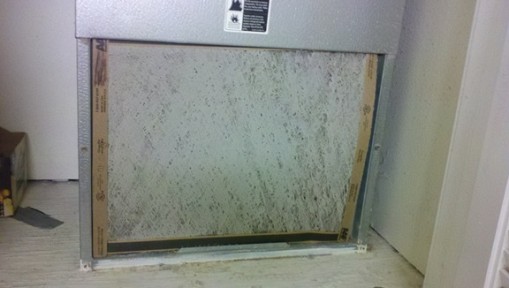The Most Efficient HVAC Filters

Whether you live in a cold city like Chicago and you're turning up the heat for the winter or you live in a warm climate like Miami's and you need the air conditioning on, it’s important to understand how HVAC filters work and which is the best one for your home. An HVAC filter safeguards your furnace's blower fan against dust and other airborne particles. It also helps regulate your home's indoor air quality.
Filters are rated by the American Society of Heating, Refrigerating and Air-Conditioning Engineers (ASHRAE). The better the filter, the smaller the particles have to be in order to get through. A filter’s efficiency is rated in MERVs (Minimum Efficiency Reporting Value), and a rating of MERV 5 indicates the least efficient type of filter available while a rating of MERV 16 is the most efficient. Experts suggest installing a filter with no less than MERV 8 in order to maintain quality air and efficient operation of your HVAC system.
Here are the various types of HVAC filter:
Fiberglass Filters
While fiberglass filters are one of the cheapest types available, they’re also the least effective at filtering out air pollutants. The fibers in the filter wear away shortly after installation and can release harmful fiberglass into the air you breathe.
Pleated Filters
Pleated filters are safer and perform better than fiberglass. They are usually made of polyester fabric which is woven tightly to catch small particles. The filter is also designed with pleats in order to create a larger surface with which to capture dust and pollutants. Newer High Efficiency Particle Arresting (HEPA) filters are also available. These have even more pleats and are one of the most effective filters for providing quality air free of allergens, mold and other harmful pollutants.
Reusable Filters
While reusable filters are popular and relatively inexpensive, there are also some downsides. One of the major disadvantages of these filters is that they are difficult to clean properly. You must wash the filter with water or a liquid cleaning substance and let it dry completely. Another problem is that the filter can absorb bacteria or mold while drying out as well as chemicals from the cleaning substance.
Electrostatic Filters
These filters are connected to the electricity either through the HVAC unit or by an external energy source and are electrified. When electrified, the filter acts as a magnet and attracts pollutants. These are usually the most effective types of filters and often come with a lifetime warranty.
Tips
It’s important to understand that the better the filter is, the faster it will accumulate pollutants and become clogged with particles. As a result, filters should be replaced or cleaned every 30-60 days depending on how much build-up there is. If left dirty for an extended period of time, your HVAC will not function as efficiently, which could lead to electrical problems that require the help of a qualified electrician. Be sure to contact a professional HVAC contractor if you’re not comfortable replacing your own filters, or to help you select the best type of filter for your home’s needs.
Updated August 28, 2018.
Looking for a Pro? Call us (866) 441-6648

Heating & cooling Average Costs
HVAC Contractors Experiences

Restaurant Ceiling Fan Installation To Beat The Florida Heat

Installing Nest Thermostat Almost As Hard As Learning To Use It



